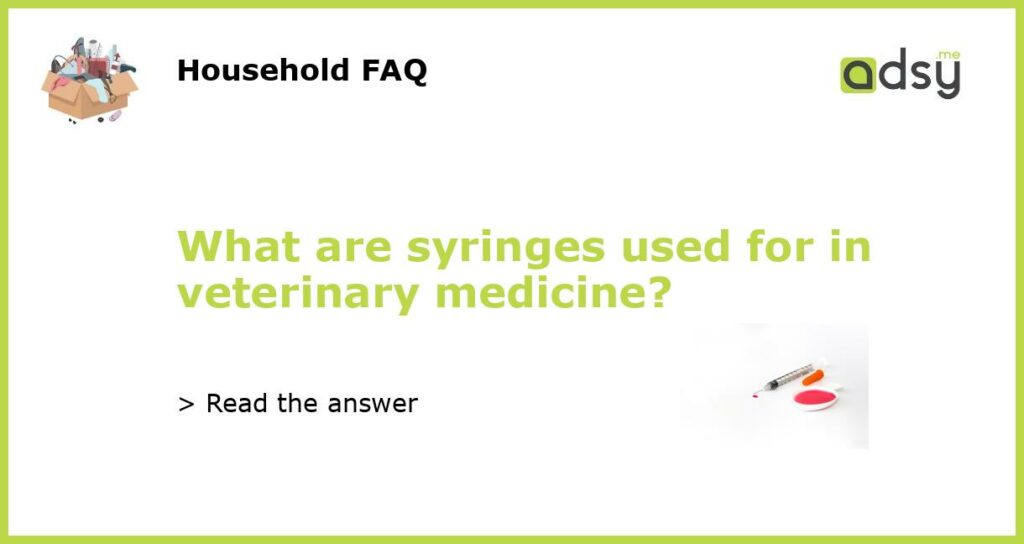Syringes in Veterinary Medicine
Syringes are a vital tool used in veterinary medicine for a wide range of purposes. Whether it is administering medication, taking blood samples, or delivering vaccinations, syringes play a crucial role in maintaining the health and wellbeing of animals. In this article, we will explore the different ways in which syringes are used in veterinary medicine.
Administering Medication
One of the primary uses of syringes in veterinary medicine is for administering medication to animals. Whether it is oral medications that need to be measured and given directly into the pet’s mouth or injectable medications that need to be delivered into specific muscles or veins, syringes provide a precise and effective method for medication delivery. By carefully controlling the dosage and ensuring accurate administration, veterinarians can effectively treat various conditions and illnesses.
Taking Blood Samples
Syringes are commonly used in veterinary medicine for taking blood samples from animals. Blood tests are a crucial diagnostic tool that helps veterinarians understand the overall health and specific health issues of animals. The syringe is used to draw blood from a vein, and the collected sample can then be sent to a laboratory for analysis. This allows veterinarians to detect diseases, monitor organ function, and check for the presence of parasites or other health concerns.
Delivering Vaccinations
Vaccinations are essential for preventing the spread of infectious diseases in animals. Syringes play a vital role in delivering and administering vaccines to animals. Veterinarians use syringes to draw up the appropriate amount of vaccine and then inject it into the animal’s muscle or subcutaneous tissue. This process ensures that the animal receives the necessary immunization to build antibodies and protect against diseases such as rabies, distemper, parvovirus, and more.
Fluid Administration
In certain medical situations, animals may require fluid administration to help maintain hydration, balance electrolytes, or deliver medications. Using syringes, veterinarians can accurately measure and deliver fluids to animals either orally or through intravenous or subcutaneous routes. The ability to control the amount and rate of fluid administration is essential for treating conditions such as dehydration, kidney dysfunction, and electrolyte imbalances.
Aiding in Surgical Procedures
Syringes also have an important role in assisting with various surgical procedures in veterinary medicine. They can be used for irrigating wounds or surgical sites to remove debris and ensure cleanliness. They are also used for suctioning fluids or secretions during procedures such as spays, neuters, and dental cleanings. Syringes with specific attachments can create suction, ensuring the surgical field remains clear and the veterinarian can perform the procedure effectively and safely.






